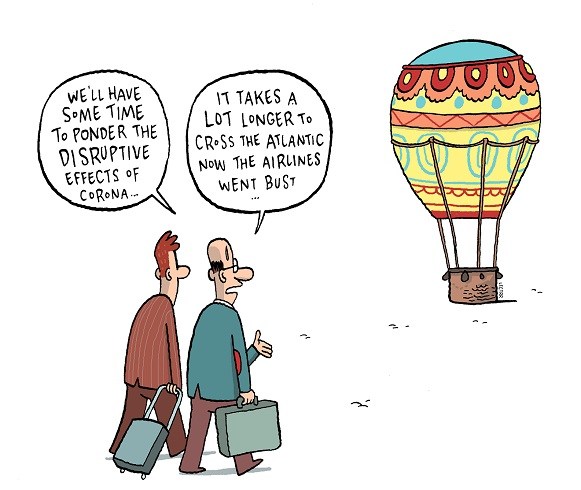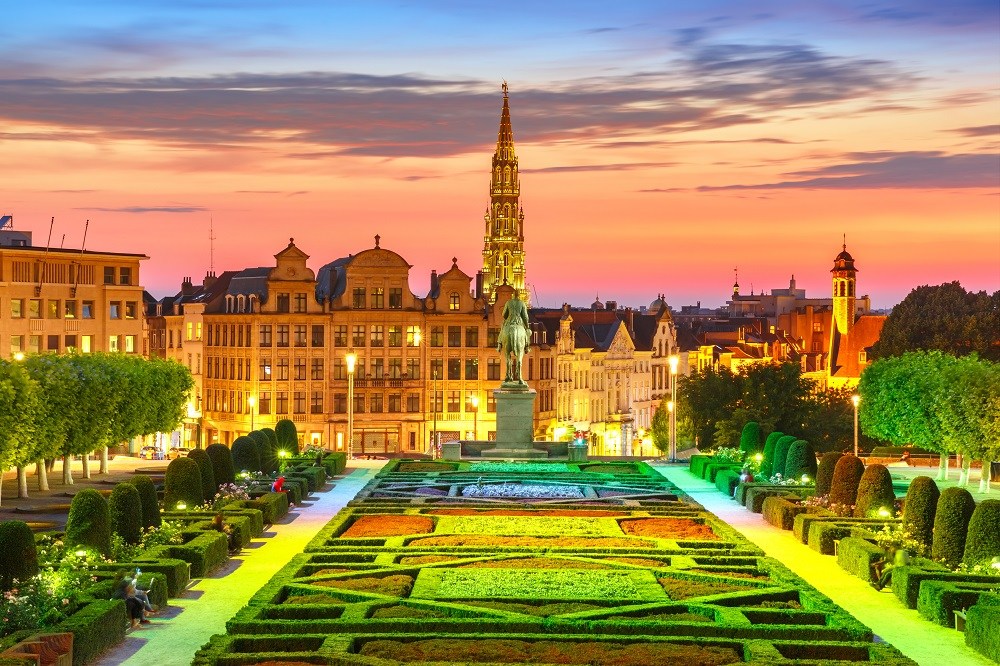1968 was a momentous year. It was a year of political, sexual and technological revolution that is still remembered for the Prague Spring, student protests in Paris, the escalating Vietnam War and preparations for astronauts to venture to the far side of the moon.
But 1968 was also marked by a disaster that has largely been forgotten: an influenza pandemic that killed up to four million people around the world over the following two years.
“Hong Kong flu” – which originated in China, but was so named because it was first recorded in the then British colony – killed more Europeans than Covid-19 has so far.
Hospitals were overwhelmed. The dead went unburied. Factories and essential services were disrupted as workers fell ill. Yet once it passed, this lethal viral epidemic had no enduring impact on European societies.
Fast forward to 2020. The coronavirus pandemic has caused unprecedented disruption to our lives. Many predict that Europeans’ way of life will be changed forever.
But to what extent is that actually likely to be true? Nobody can know for sure, but let me hazard some predictions about prospects for work, cities and social justice.
One lasting legacy of the lockdowns is likely to be the increased use of digital technologies. Many people have been forced to work, meet and shop online; for many who have now experienced the benefits of such novel ways of doing things, there will be no going back.
Many businesses have found that their employees can be just as productive working from home as at their office desk – if not more so. Many professionals have enjoyed the absence of a daily commute, greater freedom to manage their own time, and the convenience of meeting on Zoom and collaborating using Slack or Microsoft Teams.

© Lectrr
Few have missed the alienating loneliness of business travel, not to mention jet lag. And stuck at home, the ease of online shopping from Amazon, eBay and countless smaller European retailers has also come into its own.
Even painful disruption can have an upside: it can drive us to discover new and better ways of doing things. Amid the economic carnage of the worst depression since the 1930s, the potential for such permanent boosts to productivity and wellbeing provides a ray of hope.
Reality check
Some go further and predict the end of the office, the demise of business travel, and even the decline of cities. Yet all three remain implausible.
Start with offices. While some small businesses successfully operate entirely virtually, with occasional meetings in coffee shops substituting for ongoing office interaction, most larger organisations will continue to see the benefit of bringing staff together at least some of the time.
Instilling corporate culture and coordinating complex tasks are often best achieved through close contact, for instance. Employees gain from office life too: they learn from peers, develop valuable relationships with mentors and managers, and spark new ideas through spontaneous interactions. While those who can may work from home more, offices will survive.
Business travel is expensive, disruptive, time-consuming and, it turns out, often unnecessary. But while it is likely to decline, face-to-face meetings will remain essential in some cases.
Managers of international businesses cannot properly gauge the functioning of far-flung operations without periodic personal inspections. Few would sign a big contract without eyeballing their partner in person.
EU leaders, who have been meeting on Zoom, have found that striking a difficult deal – over the Recovery Fund attached to the EU’s next seven-year budget, for instance – requires personal contact and private arm-twisting in Brussels.
While conferences can sometimes be a waste of time, they also facilitate meetings and networking, and provide intellectual stimulation. While webinars are great, in an increasingly online world, people place a premium on live performance.
Just as they stream music cheaply, while paying over the odds for the experience of a live concert, they may watch YouTube videos for free while continuing to value the opportunity to interact in person with a highly paid speaker.
What of cities? Living at close quarters with other people has always had its costs, such as noise, dirt and disease. And when epidemics strike, like the plague that hit Brussels in 1667, those who can, tend to flee.
For those who have remained trapped this year in small urban apartments, recent lockdowns have often felt like solitary confinement.
Meanwhile, the pleasures of the city – museums, cinemas, restaurants, bars and, above all, other people – are of no use if they are unavailable. So if many people can work remotely much of the time, why not live somewhere cheaper with more space?
Urban living may currently seem unattractive and unnecessary. But cities bounce back – even from plagues far more devastating than Covid-19. If older, richer and more fearful people depart, they will make space for younger, poorer and more adventurous types.
Cities are where people congregate to have fun, meet different people and strive to get ahead. Even in the absence of a coronavirus vaccine, the need for social contact will reassert itself. With luck, European governments will opt for Korean-style mass testing, contact tracing and targeted quarantines until the pandemic passes.
If not, Europeans will eventually learn to live with the virus, as they do with other contagious diseases.
Far from declining, cities are likely to become more liveable. People in Brussels and other European cities have for the first time in living memory experienced clean air and uncongested streets. Unsurprisingly they like it.
The temporary need for social distancing provides the perfect excuse for bold measures to create new public spaces, expand pedestrian areas, build new cycle lanes and limit car use. Ostensibly temporary, many such changes are likely to become permanent.
Cities may also become more fun. While some people will doubtless remain wary of close human contact after the pandemic passes, others will have a pent-up desire to party. Young people who have been locked up in their prime, primarily to safeguard the old, are primed for an explosion of excess.
Likewise, some older folk who are counting the years they have left will want to make up for lost time. The 2020s could yet be a decade of wild hedonism and artistic creativity, as the 1920s were in the aftermath of the First World War and the Spanish flu pandemic of 1918–19, which killed up to 100 million people.
Post pandemic politics
Perhaps the biggest question mark is how politicians will respond to post-crisis demands for a fairer society. The 2008 financial crisis and the ensuing turmoil in the eurozone exposed fundamental injustices: politicians bailed out the reckless bankers who caused the mess, while imposing hardship and austerity on ordinary people.
The coronavirus crisis has created new cleavages. Between old and young. Between those fortunate to still have work and the many people – such as waiters, chefs, bartenders, cabin crew, gym instructors and retail staff – now unemployed.
And between middle-class professionals able to work safely from the comfort of home, and those who have had to continue going out to work and exposing themselves to risk – doctors, obviously, but also many people on low pay, such as nurses, hospital porters, bus drivers and supermarket staff.
Many – often the young, poor and vulnerable – have made huge sacrifices for the collective good. While governments have rightly provided exceptional temporary support to many of those in need, the losses are real and the scars likely to last. Many will struggle to find work again.
Those entering the job market at a time of mass unemployment are likely to suffer permanent damage to their career prospects.
Those who have run down savings and taken on new debts face an even more precarious future. Many small business owners may never bounce back.
As memories of the pandemic fade while the economic misery for many endures, understandable bitterness is likely to grow unless governments are seen to provide greater justice and opportunity for all.
The case for a fairer society is above all a moral one. But it is also a pragmatic one. If mainstream politicians fail to act, unscrupulous populists and extremists will be quick to pounce.
By Philippe Legrain

